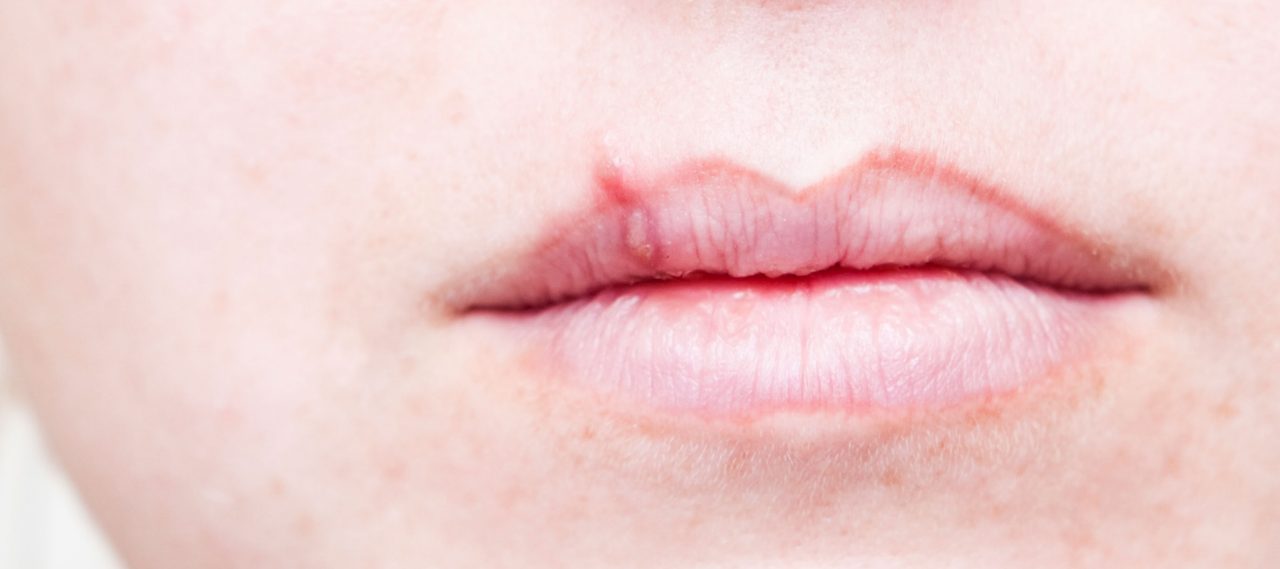Are Cold Sores Contagious?

Cold sores are contagious, painful welts that can show up on your face or fingers. Learn about the symptoms, causes, and how to get rid of cold sores.
Every winter at the start of a cold, Ruth Greene would get a cold sore on her upper lip. It was hideous. No tween or teenage girl wants to be seen with a blister on her lip.
“It was an annual thing,” she said, “and I hated it. I felt a cold coming on and this reddish bump would appear on my lip.”
The cold sore, also called a fever blister, lasted almost two weeks, about the length of her annual cold. She was self-conscious about it, too.
“I still get them, but not every year,” she said. “I wanted to know how are cold sores contagious and how do I avoid getting them?"
What causes cold sores?
Cold sores are caused by the herpes simplex virus (HSV). There are two types of herpes simplex viruses. Type 1 (HSV-1) often cause cold sores. Type 2 (HSV-2) usually causes genital herpes. They’re similar in appearance. It’s also possible for type 1 to cause sores on the genitals and for type 2 to cause sores on the mouth.
Cold sores on the mouth are known as oral herpes. Since a cold sore is a virus, it’s passed from person to person. You can get a cold sore by kissing someone who has a cold sore or by drinking from the same glass or cup.
Cold sore symptoms
Symptoms of cold sores include:
- A tingling feeling in the mouth or area where one is forming
- Itching
- Burning
- Numbness
- Pain in the lip or mouth
Are cold sores contagious?
Cold sores can spread easily, and according to Mark Kaufmann, a dermatologist and MD at the Icahn School of Medicine at Mount Sinai in New York City, cold sores are very contagious. “About 10 percent of people who are infected with type 1 herpes simplex will develop a cold sore within one to two weeks.”
Cold sores are not only contagious and appear on the mouth, but they can spread to your fingers and hands. “Touching cold sores can also cause a rare infection called herpetic whitlow,” said Alan Mensch, MD, senior vice president of medical affairs at North Shore Long Island Jewish’s Plainview and Syosset hospitals. “Herpetic whitlow causes a person’s finger or hand to have redness, swelling, and blisters that ooze clear or yellowish fluid.”
From the moment you feel a slight tinge or itching around your mouth until they are completely healed and gone, cold sores are contagious. They’re at the height of contagion when they burst, and fluid seeps out.
If you have a cold sore on your mouth, keep your hands away from your face, and wash your hands with soap and warm water to avoid spreading the virus.
How long do cold sores last?
Cold sores last between 8 and 12 days. In some cases, they can last longer. With treatment, you can get rid of a cold sore within a few days.
Greene is in her early 30s and hasn’t had a recurrence for a number of years — about five. “I remember the tingling and, before I saw anything on my lip, I knew a cold sore was coming,” she said. “I went through this almost two-week period where it would bloom, rupture, scab over, and then vanish.”
Greene described pretty closely the life of a cold sore. When a scab forms, eventually it will fall off and the area around it will heal. Kaufmann said that even when a scab forms, the cold sore is still contagious.
Why do cold sores recur?
The reason that cold sores reappear from time-to-time, according to a report by the National Institute of Dental and Craniofacial Research, is because the herpes virus can hibernate in nerve cells and re-emerge when a person is sick, stressed, or menstruating.
How are cold sores contagious?
You can infect others by kissing, sharing cosmetics, or sharing food. Cold sores can also be caused by a fever, cold, over exposure to the sun, stress, menstruation, HIV/AIDS or a weakened immune system, eczema, chemotherapy, and dental work.
Once you get the virus, it can remain dormant in your body and never reappear, or it can appear repeatedly. If you have a cold sore, you can apply over-the-counter (OTC) ointments available at most drugstores. They won’t cure your cold sore, but can lessen the severity.
How to get rid of cold sores
If you have a cold sore, you can apply over-the-counter (OTC) ointments available at most drug stores. They won’t cure your cold sore, but they can lessen the severity.
OTC remedies work best when they are applied at the first sign of a cold sore; you’ll have to administer them several times a day. Instructions are on the tube or jar; it comes in cream or ointment form.
Some cold sores are also treated with prescription antiviral medications. If you have an ongoing history of having cold sores talk to your doctor; he may prescribe an oral antiviral medication.
To keep from spreading cold sores to other people, wash your hands often, and don’t shake hands or touch other people. Never share drinks, food, lip balm, or anything else you may put in your mouth. If you do share something, you’ll spread the virus.
Other ways to get rid of cold sores include applying zinc oxide lip balm when you’re in the sun and avoid kissing anyone with a cold sore. If you notice that you get a cold sore when you’re experiencing stress, try meditating or other relaxation techniques.
YOU MIGHT ALSO LIKE: The Relaxation Response Can Reduce Doctor Visits
Updated:
March 26, 2020
Reviewed By:
Janet O’Dell, RN